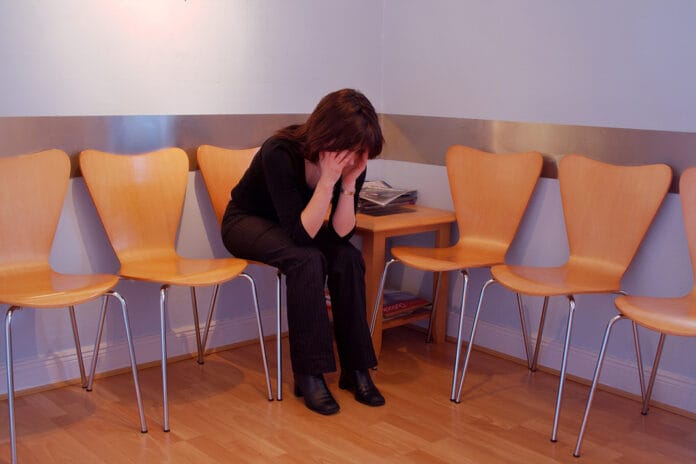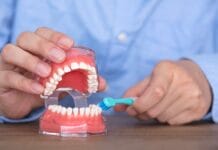Editor’s note: This article is not suggesting that dental hygienists are therapists or counselors. However, dental hygienists build rapport with patients, and with that may come patients disclosing personal things, including that they are grieving. This article addresses what to say when a patient presents in your chair, grieving, from a hygienist who has had the same experience. After all, dental hygienists treat humans as individuals, and with that comes compassion.
The dental hygiene appointment started off as any appointment does during the COVID-19 pandemic. In the waiting room, I called my patient’s name. She peeled her attention from her cell phone, stood up, and followed me back into the treatment area. I introduced myself and told her that she could make herself comfortable in the dental chair and, when she was ready, she could take her mask off.
I asked a simple question, but that was all it took. “How are you today?” I asked. She responded by saying that she was not doing so well. My back was to her as I was pouring antimicrobial pre-rinse from the bottle into a cup.
Assuming she was referring to her teeth, I asked if something was bothering her in her mouth. She then clarified her response. “My dad died earlier this week,” she told me as she was fighting back tears. I froze and felt an awful, stabbing feeling in my heart. I should have known what to say and what to do because I looked just like this patient a year ago when I lost my father.
I had been in her shoes before, so I was shocked and angry at myself for freezing. I quickly thought about what I wanted people to say to me the week after my dad died. I was flipping through memories as someone would thumb through a Rolodex. “I’m so sorry for your loss” seemed calloused, rehearsed, and impersonal. “I’m sure it has been tough” did not seem to make the situation better.
I put the cup of pre-rinse down and walked over to her so I could look right into her watery eyes. Handing her a tissue, I mustered up the words, “I completely get it. Do you want to tell me what your dad was like?” We both smiled through the tears and exchanged a moment of deep understanding. She knew that we were both members of the dreaded “dead parent” club.
What to Say?
I had just been through this, and even I did not know what to say immediately. It became clear that many dental providers would not be able to find the right and respectful words to say to a patient who is grieving − especially those who have not walked similar paths of life yet.
Here is my best advice.
Do not try to “one-up them” or try to overly compare. Their loss is the most grievous loss in this moment. Instead, just listen attentively and even embrace their silences. Let grieving patients be the drivers of this conversation. Do not compare this to a personal experience unless the comparison is similar. This is not the same as your pet fish, Rainbow, who died when you were five years old. We are talking about the person who gave them life.
Do not ask dumb questions. Unless the person grieving offers the information on their own, do not ask how they died or, even worse, if they were sick and/or how old they were. These types of questions can be viewed as unwanted prying. The background behind someone’s death does not matter; that information is irrelevant to the dental appointment. It is a momentous loss, so treat it as such. An appropriate question would involve asking them to tell you something about the deceased person.
Do not say faith-based phrases such as “They are in a better place now!” or “God has a plan for everybody!” Do not assume this person is religious. Even if you know this grieving patient is a person of faith, know the time and place for it. This person is likely angry with whatever God or higher power they believe in and, quite frankly, maybe questioning their faith at a time like this.
React well to their emotions. If they cry, let them. If they decide they do not want to continue with their appointment, then understandably reschedule. Praise them for their strength if they do want to continue with the visit. They got themselves ready and mustered up enough courage to face the world without an important person to them. They came to the dental office for their appointment, which shows that oral health is important to them. They did all of this when they probably did not even want to get out of bed that day.
This may sound obvious but also acknowledge the loss. Many people try to quickly change the subject. Address that what they are going through at this moment is really awful. Offer condolences at the bare minimum and wish them better tomorrows as they try to celebrate the life that once was.
More likely than not, patients who have recently lost a loved one want to talk about them. Avoidance always makes it worse. Tiptoeing around and not saying their name somehow makes matters unbearable. Memories of that person are all that is left to cling to, so talking about them in a positive light helps. Recalling stories makes them feel more alive and makes those memories easier to cling to.
Finally, I would be remiss not to mention this last one. If there is anything that my father taught me, it is that humor is the best medicine. He loved to make people laugh. I have vivid memories of laughing through tears in the days that followed his death. So, if you think they can handle it, and you believe you can find something humorous to say, then give it a whirl. Even if they do not laugh, they may smile, and it might have been a long time since they have done that, too.
Through moments of tears, my patient and I got through that appointment. We talked mostly about her father and sprinkled some oral health talk in there. After all, it was a hygiene visit. I sat her chair back up, we scheduled her next hygiene visit, and she gathered her belongings.
I will never forget what happened next. As I was walking her out to the hallway, she asked me if it ever gets better. I simply told her that it does not, but it does get more manageable.
Before you leave, check out the Today’s RDH self-study CE courses. All courses are peer-reviewed and non-sponsored to focus solely on high-quality education. Click here now.












